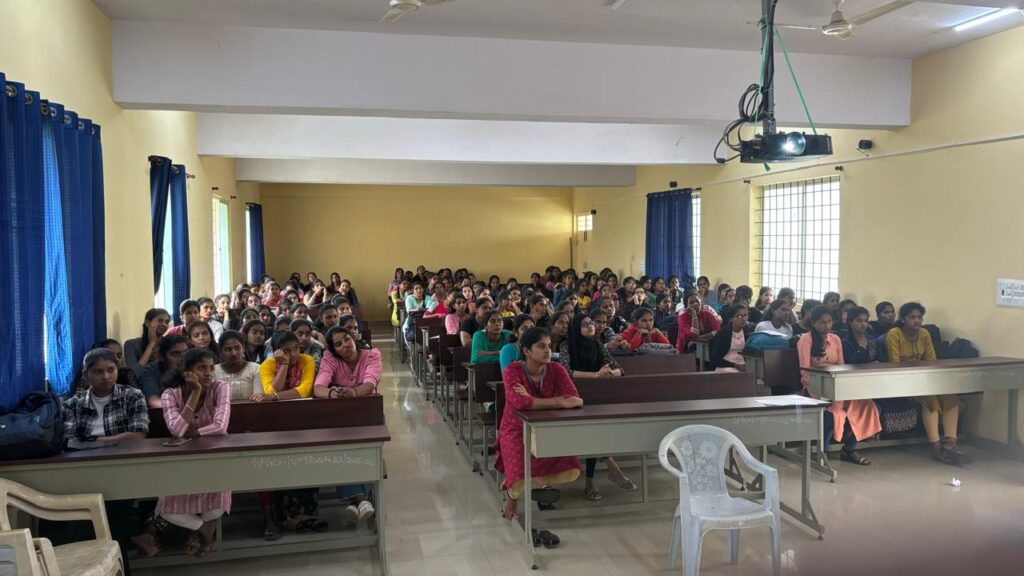
In many parts of rural India, particularly in states like Karnataka, menstruation remains a taboo topic, shrouded in myths and misconceptions. The silence around periods has contributed to poor menstrual hygiene practices, limited access to sanitary products, and a lack of education on menstrual health. period educators, a vital force in changing the landscape of menstrual health awareness in Karnataka’s rural communities. These educators are helping break taboos, foster open discussions, and provide essential information about menstrual hygiene.
In this blog, we’ll explore why period educators are crucial for Karnataka’s rural areas, the challenges they face, and how they are making a lasting impact on menstrual health and awareness.
Why Period Educators Are Essential in Rural Karnataka
Karnataka’s rural communities, like many others across India, are home to deep-rooted cultural taboos surrounding menstruation. These taboos prevent open discussions about periods, leading to a lack of understanding and knowledge about menstrual health. This silence around menstruation often translates into poor menstrual hygiene practices, restricted access to proper sanitation, and the absence of menstrual education in schools and communities.
Period educators serve as a bridge, helping to open conversations about menstruation, dismantle misconceptions, and ensure that menstruators—particularly young girls—understand how to care for themselves during their periods. They not only teach menstruators how to use menstrual products but also stress the importance of maintaining menstrual hygiene to avoid infections and other health complications.
Here are some of the primary reasons period educators are indispensable in rural Karnataka:
- Breaking the stigma: Menstruation is often viewed as a source of shame in rural communities, with menstruators being treated as impure. Period educators work to break down these harmful stereotypes, helping communities view menstruation as a normal, healthy process.
- Providing menstrual education: Many menstruators in rural Karnataka begin menstruating without having any prior education or knowledge about what to expect. Period educators provide essential information about the menstrual cycle, menstrual hygiene, and available products.
- Improving access to menstrual products: One of the key challenges in rural Karnataka is the lack of access to affordable, quality menstrual products. Period educators not only raise awareness but also work with NGOs and government programs to distribute sanitary products to those in need.
The Challenges Faced by Period Educators in Rural Areas
While period educators play a vital role in promoting menstrual health, they often face significant challenges, especially in rural Karnataka, where cultural taboos and limited resources create barriers to education and access.
Deep-Rooted Stigma and Cultural Taboos
In many rural communities, menstruation is seen as something that should be hidden or not discussed. Menstruators are often prohibited from participating in daily activities during their periods, including entering temples, preparing food, or even attending school. These restrictions stem from long-standing cultural beliefs that view menstruation as impure or dirty.
Period educators in Karnataka must navigate these sensitive cultural contexts to effectively communicate the importance of menstrual hygiene and health. It often requires building trust within the community, working with local leaders, and creating safe spaces where people feel comfortable discussing periods openly.
Lack of Infrastructure
Another significant challenge in rural areas is the lack of infrastructure to support menstrual hygiene. Many schools and homes lack proper toilet facilities, and menstruators have limited access to water, sanitation, and disposal systems for menstrual products. This makes it difficult for menstruators to maintain hygiene during their periods, leading to infections and other health issues.
Period educators not only focus on education but also advocate for better infrastructure, such as clean toilets in schools and public places. They work with NGOs, community leaders, and government agencies to push for changes in rural sanitation systems that can help menstruators maintain their health and dignity during their periods.
Limited Access to Menstrual Products
A key challenge for period educators in Karnataka is the lack of access to menstrual products. Many rural menstruators use traditional methods such as cloth, which, when not cleaned or dried properly, can lead to infections. The cost of sanitary pads is another barrier for many rural families, particularly in low-income communities.
Period educators collaborate with non-profit organizations, government schemes, and social enterprises to distribute affordable or free menstrual products to menstruators in need. By providing reusable products such as menstrual cups or cloth pads, they offer sustainable solutions that are both eco-friendly and cost-effective.
The Role of Period Educators in Schools
Schools in rural Karnataka are critical settings for menstrual education, as many girls begin menstruating during their school years without any formal education about what menstruation is or how to manage it. In many cases, girls drop out of school after reaching puberty because they are too embarrassed or ashamed to attend school while on their periods, especially if schools lack proper sanitation facilities.
Period educators in schools provide essential education to young girls about menstruation, helping them understand the biological processes involved and teaching them how to manage their periods with dignity. In addition, these educators often work with school administrators to ensure that schools have sanitary facilities and distribute menstrual products to students who need them.
Here are some of the critical roles that period educators play in rural schools:
- Providing menstrual hygiene education: Educators teach students about the importance of menstrual hygiene, how to use sanitary products correctly, and how to avoid infections.
- Normalizing menstruation: By promoting open discussions about menstruation, period educators help reduce the shame and embarrassment often associated with periods, making it easier for girls to attend school during their periods.
- Encouraging boys and non-menstruators to learn: Period educators also educate boys about menstruation, helping them understand the process and promoting empathy and support for their female peers.
Government and NGO Support for Period Educators
Government initiatives and non-governmental organizations (NGOs) play a crucial role in supporting the work of period educators across Karnataka. Several schemes and programs are aimed at promoting menstrual hygiene and education in rural areas.
The Role of Government Schemes
The National Menstrual Hygiene Scheme, launched by the Indian government, aims to improve menstrual hygiene among adolescent girls in rural India. The scheme provides subsidized sanitary napkins to rural menstruators and promotes awareness about menstrual health. In Karnataka, this scheme has been implemented in several districts, with period educators working on the ground to distribute products and provide education.
Period educators also partner with state governments to promote menstrual hygiene in schools, ensuring that students receive proper education and access to sanitary products.
NGO-Led Initiatives
NGOs such as Menstrual Health Alliance India, Goonj, and EcoFemme have been at the forefront of promoting menstrual health in rural Karnataka. These organizations often collaborate with local period educators to run workshops, distribute reusable menstrual products, and raise awareness about menstrual health in communities.
For example, Goonj’s “Not Just a Piece of Cloth” initiative repurposes cloth into reusable sanitary pads and educates rural communities about sustainable menstrual practices. Similarly, EcoFemme works to promote eco-friendly menstrual products like cloth pads and menstrual cups, helping menstruators reduce waste and save money.
By working together, these organizations and period educators are helping to transform the menstrual health landscape in rural Karnataka, one community at a time.
The Future of Period Education in Karnataka
The future of period education in Karnataka looks promising as more communities, government bodies, and organizations recognize the importance of menstrual health. The increasing visibility of menstrual health issues, along with the advocacy efforts of period educators, is pushing for systemic changes that will benefit rural menstruators.
Several steps are critical for improving the future of period education in rural Karnataka:
- Scaling up menstrual education programs: Expanding programs that provide menstrual education in schools and communities is essential for reaching more people and promoting widespread period awareness.
- Improving infrastructure: Ensuring that schools and public spaces have adequate sanitation facilities is crucial for helping menstruators manage their periods with dignity.
- Advocating for policy changes: Period educators and advocates must continue to push for policies that promote menstrual equity, such as free access to menstrual products and better sanitation systems in rural areas.
- Sustainable solutions: Promoting sustainable menstrual products, such as reusable cloth pads and menstrual cups, will help reduce both the financial burden and environmental impact of menstruation in rural areas.
Conclusion
Period educators are on the front lines of transforming menstrual health in Karnataka’s rural communities. By providing education, challenging taboos, and advocating for better access to menstrual products, they are making a lasting impact on the lives of menstruators. With the support of government programs and NGOs, period educators are helping to create a future where menstrual health is no longer a taboo subject but an integral part of overall health and well-being.
FAQs
Why are period educators important in Karnataka’s rural communities?
Period educators play a crucial role in breaking the stigma surrounding menstruation, providing education about menstrual health, and improving access to sanitary products in rural areas.
What challenges do period educators face in rural Karnataka?
They face challenges such as deep-rooted cultural taboos, lack of proper sanitation infrastructure, and limited access to affordable menstrual products.
How do period educators work with schools in rural Karnataka?
Period educators provide menstrual hygiene education to students, normalize conversations about periods, and ensure that schools have sanitary facilities and distribute menstrual products to students in need.
What government schemes support menstrual education in rural Karnataka?
The National Menstrual Hygiene Scheme provides subsidized sanitary napkins and promotes menstrual health awareness among adolescent girls in rural India, with the support of period educators.
How do NGOs support period education in rural areas?
NGOs collaborate with period educators to run workshops, distribute reusable menstrual products, and raise awareness about sustainable menstrual practices in rural communities.
What is the future of period education in rural Karnataka?
The future looks promising with the expansion of menstrual education programs, improvements in infrastructure, and advocacy for policy changes promoting menstrual equity.

